This is the latest piece in NSNO’s series, “The Future is Bright.” We are profiling incredible educators from across our community. They are helping our students build brighter futures through the work they do each day, and their leadership creates a brighter future for our schools and our city.
Many of these educators are connected through programs NSNO leads for:
- classroom teachers (The New Orleans Teacher Community),
- current and soon-to-be principals (The Principal Collaborative and the Novice Leader Academy), and
- current and aspiring system-level leaders (E3 Fellowship).
Some share a school building, a network, or a mentor. All of them are united in their purpose to give our students the best possible education, and in so doing, build a brighter future for our children and for us all.
Today, we profile Dominique Walker, teacher at KIPP Leadership Primary.
How Dominique Walker Builds an Empowering, Joyful Classroom at KIPP Leadership Primary
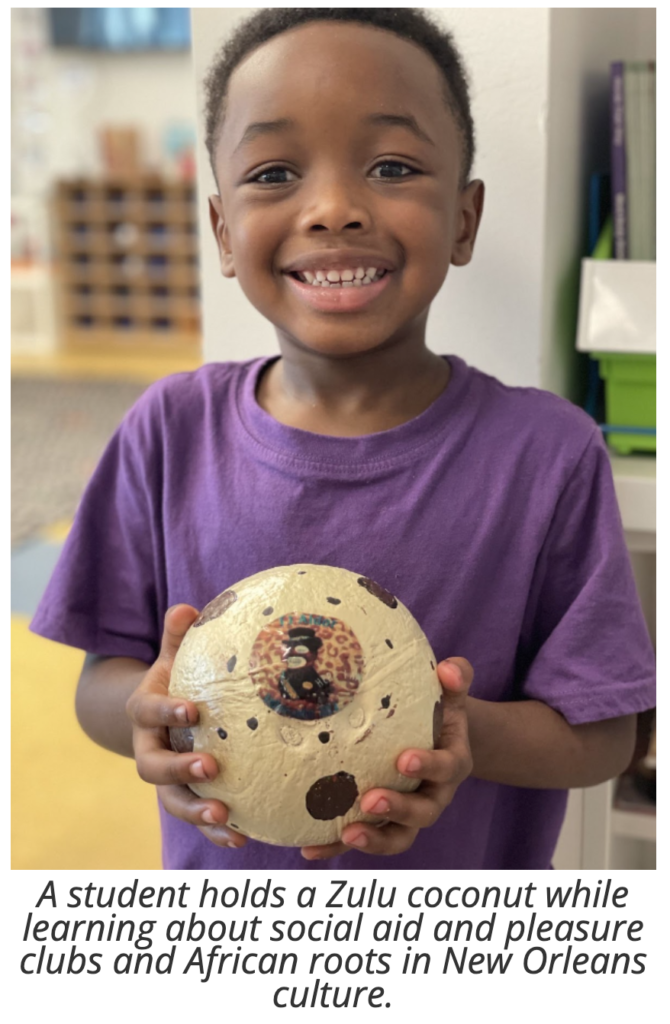
In Dominique Walker’s class this year, the students wore crowns.
They were made of paper and decorated by the children in conjunction with a picture book they read. But Walker, who teaches kindergarten at KIPP Leadership Primary (KLP), also sees them as a metaphor.
“You always have a crown on your head, even when you don’t,” she explains. “It doesn’t matter how old you are, you’re never too young to help other people. We just let them know that they’re special, and really just work on that identity affirmation,” she says.
Walker wants her kindergarteners to feel empowered, strong, and ready to take on the world. Part of that means getting to know the world right around their school building, which is on St. Claude Avenue. Walker teaches students about New Orleans history and culture.
“From the beginning of the year, we kind of started checking out ways for them to learn about Gentilly, and Pontchartrain Park, and the Seventh Ward,” she says. “All the rich history that’s just literally all around our school in itself where we’re located.”
“We’ve learned about A.P. Tureaud. We’ve learned about the Zulu Club, we’ve learned about a lot of social aid and pleasure clubs. We’ve talked about the environment and how Claiborne Avenue used to look very different,” she says.
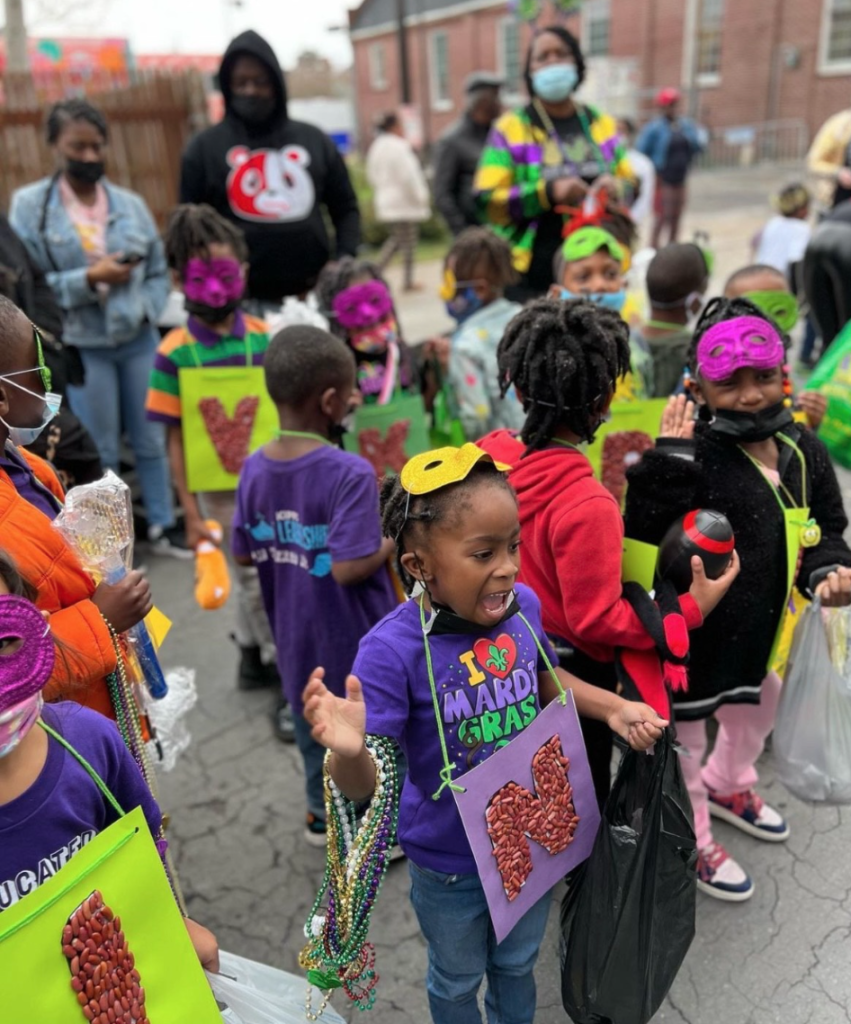
When students learn about role models like Tureaud, Walker is careful to make a leader’s path seem possible.
“All these people you learn about, they were also young,” she tells them. “They also started somewhere.”
Students made their own shoe-box dioramas of examples of Black and African heritage in New Orleans’ culture and architecture. Walker says that part of what students need to learn in kindergarten is a sense that school is a place they belong. It’s not just about getting the basics for math and reading, but understanding that school is a comfortable, fun, and welcoming place to be.
For Walker, this can have a powerful ripple effect. She feels frustrated with what can be a negative public dialogue around New Orleans’ students.
“You really have to focus on the positive, because these kids are the future. So if you don’t like what’s going on in the city, really the way to change that is to give children the education they need and these loving, fun experiences,” she says. “So it means a lot to me to sometimes step away from the content and give them those opportunities to learn about each other, and learn about their history, and just have fun.”
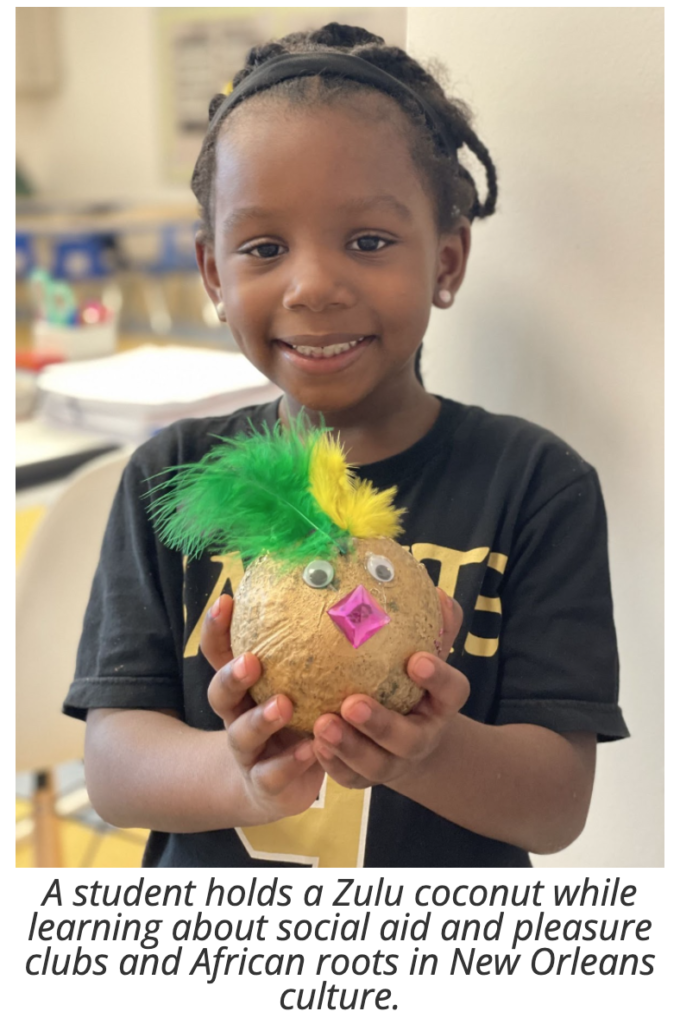
Walker builds in opportunities to have fun throughout the school year, not just when students are learning about local history. They have a weekly Friday celebration that ties into whatever they are learning about. In the spring, when they were learning about colors, they made tie-dye t-shirts.
“Really seeing them in those moments is the most joyous thing for me,” Walker says. “A lot of times, play gets cut. And for a kindergartener, playing is really important to their communication, and their sharing, and their social skills.”
Walker’s ability to build this type of joyful, productive environment comes from training, experience, and mentorship.
She hadn’t planned on becoming a teacher. She arrived at Xavier University of Louisiana in 2009 from Los Angeles, California, with the intention of being a doctor. She found she wasn’t feeling passionate about the classes, and she came from a family of educators, so she decided to try that path. She loved the first education class she took.
“From there on I never looked back. It was never a second guess about what I was going to do.”
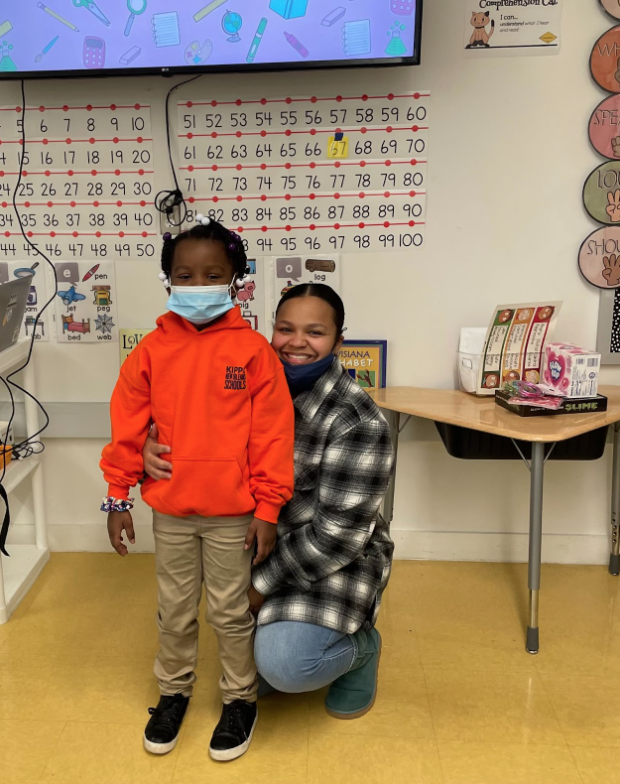
Much of the classroom she’s crafted today was shaped by her earliest mentor, Michelle Melancon, at Lafayette Academy.
“When I think of New Orleans, I think of her. She made everything fun. She did things differently than other teachers…I was in awe,” she says.
Melancon pushed Walker to seek out professional development, go to conferences when she could, and always pursue her own continued education and training. Walker has done so.
Walker and Melancon are still in touch, and when Walker posts something about her classroom on social media, Melancon is one of the first to comment.
“She’s always telling me, ‘I don’t expect anything less – keep going.’”
With almost a decade of experience now, Walker wanted to pay it forward. She participated in a “mentor teacher cohort” through a program that was a collaboration between the Louisiana Department of Education, a certification program, NSNO, and the University of New Orleans. Through this, an education student from UNO was a student teacher in her classroom. She loved it.
“Just being able to help navigate the challenges that teachers face that aren’t in a book…it was so rewarding,” she says.
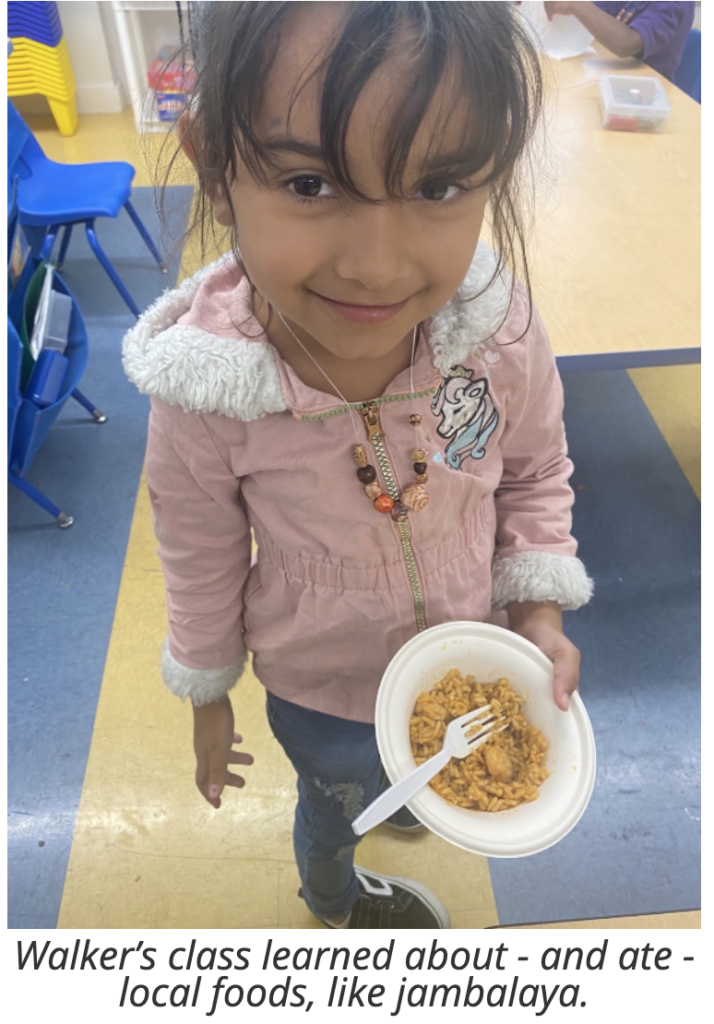
The student-teacher had a successful year, and is headed now to be a full-time educator in Atlanta.
Between her classroom teaching, her mentorship, and her own professional development, Walker is busy, and it has been an exhausting year for all teachers. In New Orleans, with a pandemic and a hurricane, educators were up against a lot.
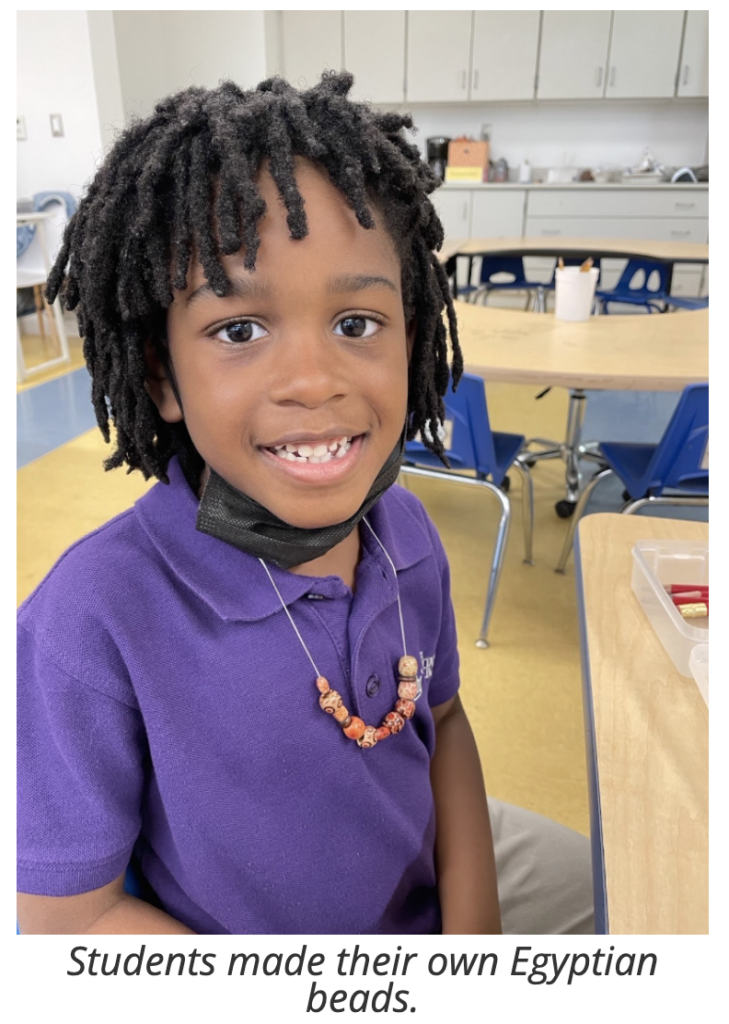
Walker says she is grounded by the relationships she holds, and by the moments of growth she sees in students.
“When kids come back and visit, or when families reach back out and say, ‘hey, do you want to come to this event?’ Or ‘our child has accomplished this’, or, ‘we appreciate you’. Those moments are priceless. Or going to their graduations, their football games? When they want to invite you, and they want to include you? It just really makes you feel like family,” Walker says.
She loves watching her former kindergarteners progress through the older grades at KLP. A few years ago, she watched one student who began the year very shy and quiet turn into a “natural leader” by the end of the year.
“She came out of her shell and was getting other students to make better choices,” Walker says.
Now, five years later, this student performed a poem in front of the entire student body, and had become an activist around Black Lives Matter in and out of school. Walker envisions seeing students like this continue to shine.
“They were leaders in my class, leaders in their family, leaders amongst their peers. And those are the kids that when they grow up, you’ll say, well, ‘that’s our politician,’ or ‘that’s our chef,’ you know? It’s so good to see them grow and know that you’re a part of ‘watering that plant.’”
But for Walker, the best part is not seeing students’ accomplishments, but seeing them feel good about themselves.
“I think the biggest joy for me is just seeing them happy,” she says.
